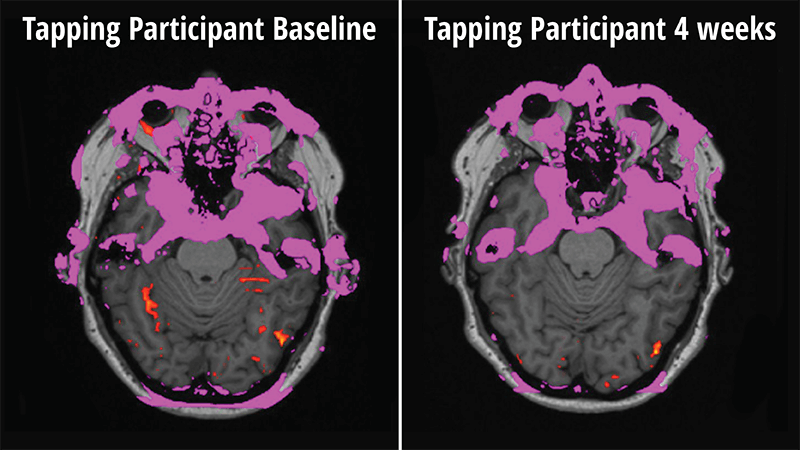
Tools that actually work
Akimera uses a number of highly effective tools her programs.
One of the significant tools is Emotional Freedom Technique (EFT), also known as Tapping.
For more information on the effectiveness of Tapping for stress management, programming beliefs, treating trauma and much more, see below.
Over 120 Peer-Reviewed Papers Show Positive
Clinical Outcomes of EFT Tapping
Placebo or Real?
In 2013 a study was published in the Energy Psychology Journal confirming the benefits from EFT are the result of the tapping process and not a placebo effect. The study included 20 college students who were divided into two groups. One group did EFT while the control group received mindfulness training. Before and after the sessions, positive and negative emotions were assessed.
“No significant change was found for mindfulness. Tapping on acupoints, combined with the vocalization of self- affirming statements about an issue, appears to be an active ingredient in EFT rather than an inert placebo. The results were consistent with other published reports demonstrating EFTs efficacy for addressing psychological conditions in students” (Fox, 2013) .
Abuse and Depression
In a critical review published in the American Psychological Association’s (APA) journal Review of General Psychology in 2012, researchers found that EFT "consistently demonstrated strong effect and other positive statistical results that far exceed chance after relatively few treatment sessions.
For example:
A 2009 study 4 of 16 institutionalized adolescent boys with histories of physical or psychological abuse showed substantially decreased intensity of traumatic memories after just ONE session of EFT.
An EFT study involving 30 moderately to severely depressed college students was conducted. The depressed students were given four 90-minute EFT sessions. Students who received EFT showed significantly less depression than the control group when evaluated three weeks later.
PTSD and Stress
Post-traumatic stress dosorder (PTSD) sufferers average 24% reduction in the stress hormone cortisol after 1 hour of EFT. No difference between talk therapy and control group. (Dr. D Church)
Another study with 59 U.S. veterans with PTSD resulted in an impressive 86% of those receiving the EFT Tapping dropped from the category of clinical (severe) PTSD to the category of subclinical PTSD.
A more recent study at the Bond University QLD showed a 42% decrease in the stress hormone cortisol with multiple applications of EFT.
Study with orphans from the 1994 Rwandan genocide 47 of 50 participants scores went from above to below the PTSD cutoff (Stone et. al, 2009).
Proof that Tapping makes your brain forget food cravings
Dr Peta Stapleton at Bond University, Yugambeh Country (Gold Coast), Australia is the first researcher to measure the effects of tapping for food cravings on the brain using Functional MRI (fMRI).
Participants were put in the fMRI and shown pictures of foods that they craved, such as chocolate, doughnuts and take-aways. Increased neural activity leads to more blood oxygen, which shows up on the scans (in orange).
No intervention participant, BEFORE.
Tapping participant,
BEFORE.
No intervention participant, AFTER.
Tapping participant, AFTER.
Tapping deactivated the part of the brain that got excited by the high fat, salty and sugary foods. As you can see the participants brain is no longer interested in the high-impulse low-nutrition foods. These findings were consistent among all but one participant, and show that the somewhat mystical process of tapping is having a very real effect on the brain.
It is said that tapping works well with intuitive eating principles.
Want to know if we can help you with your specific needs?
We Fill out the form and we’ll be in touch shortly.





